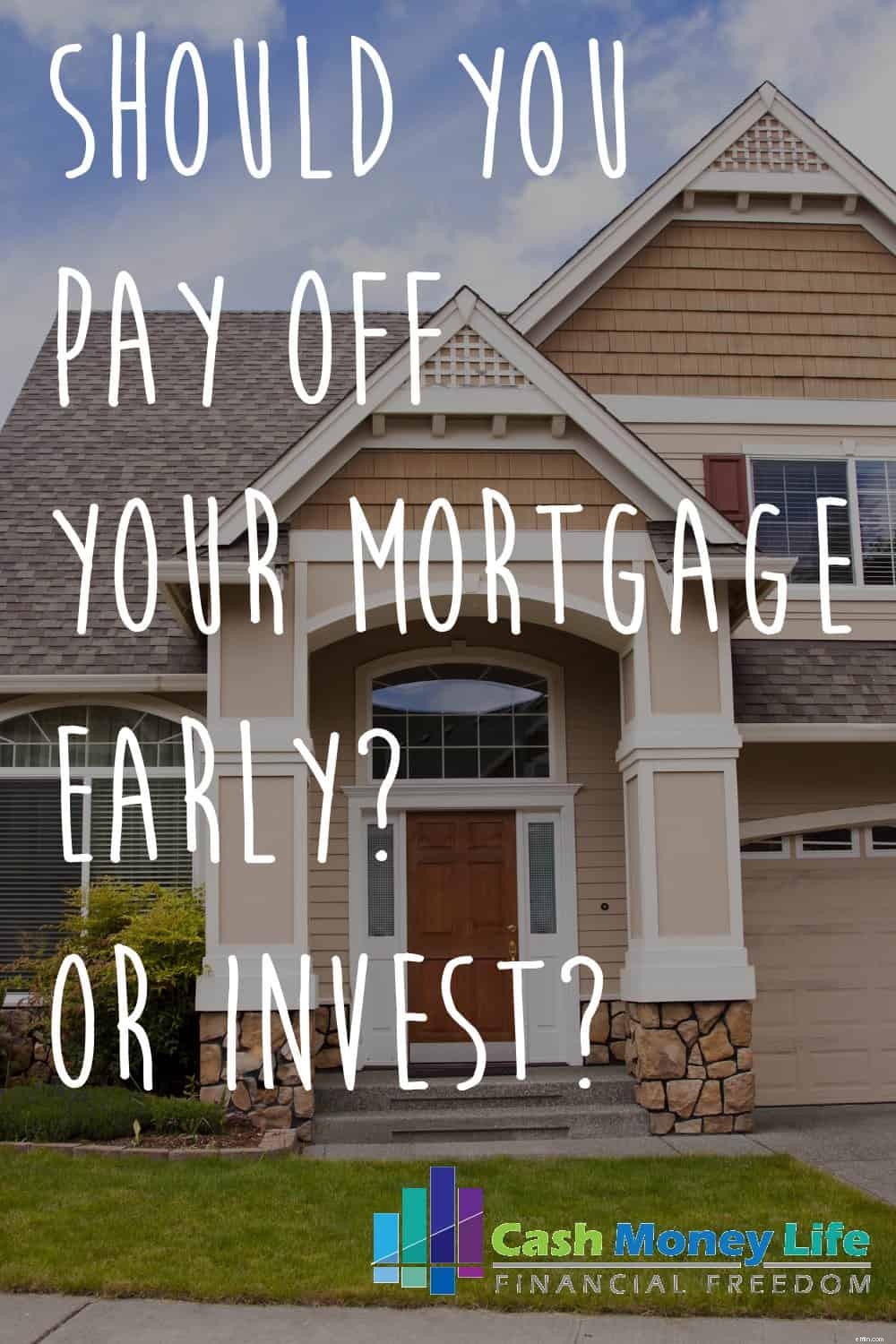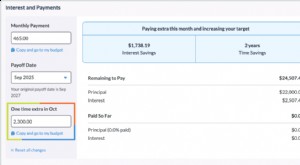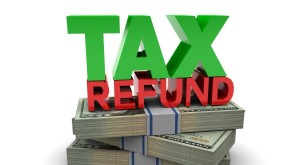Você deve pagar sua hipoteca antecipadamente ou investir?
Um dos tópicos mais debatidos em finanças pessoais é se faz mais sentido pagar sua hipoteca antecipadamente ou investir dinheiro extra. Existem vantagens e desvantagens em ambas as opções, e no final do dia, pode não haver uma solução que seja melhor para todas as situações. Não importa qual escolha você faça, para pagar antecipadamente sua hipoteca ou investir dinheiro extra, você precisa tomar uma decisão e então permanecer disciplinado o suficiente para continuar seu curso de ação preferido.
Vou lhe dar alguns conselhos sobre por que você deve ou não pagar sua hipoteca, e porque você só precisa escolher o que é melhor para você e sua situação financeira. Então vamos fazer isso!
Por que você NÃO deve pagar sua hipoteca
 O senso comum é que você deve pagar sua hipoteca assim que puder. Na maioria dos casos, isso faz muito sentido. Mas nem a situação de todos - ou preferência - é convencional, então você não está pensando em pagar sua hipoteca, está bem, e aqui estão alguns motivos pelos quais isso está OK!
O senso comum é que você deve pagar sua hipoteca assim que puder. Na maioria dos casos, isso faz muito sentido. Mas nem a situação de todos - ou preferência - é convencional, então você não está pensando em pagar sua hipoteca, está bem, e aqui estão alguns motivos pelos quais isso está OK!
Sua hipoteca é provavelmente a dívida de menor taxa que você tem
Isso nunca é mais verdadeiro do que agora, uma vez que temos taxas de juros baixas recordes. Uma hipoteca de taxa fixa de 30 anos representa uma oportunidade única de travar taxas historicamente baixas - 3.algo ou 4.algo - por décadas. E se você olhar para as taxas de juros dos últimos 30 anos, você pode facilmente perceber que poderemos ver taxas tão baixas novamente.
Isso é especialmente importante se você tiver outros tipos de empréstimos com taxas de juros mais altas, especialmente cartões de crédito e empréstimos estudantis. Se você pagar qualquer dívida, você seria melhor pagá-los ao invés de sua hipoteca, uma vez que normalmente carregam taxas de juros muito mais altas.
Você vai pagar o empréstimo eventualmente, não importa o quê
Há um lado positivo em escolher não pagar sua hipoteca antecipadamente - mesmo se você não fizer nenhum esforço especial, sua hipoteca será eventualmente paga de qualquer maneira. Isso ocorre porque as hipotecas são configuradas para serem auto-amortizáveis - conforme você faz seus pagamentos mensais, o princípio é reduzido gradativamente até que o empréstimo seja totalmente extinto no final do prazo.
A questão é, mesmo se você acumular dinheiro, investir em outros ativos, ou saldar dívidas não habitacionais, sua hipoteca ainda vai acabar sendo paga!
Se você decidir investir economias extras em lugares diferentes de sua hipoteca, apenas certifique-se de não aumentar o endividamento da hipoteca. Isso significa evitar segundas hipotecas e linhas de crédito de home equity. Também significa não retirar nenhum dinheiro adicional no caso de refinanciar sua primeira hipoteca.
Pagar sua hipoteca antecipadamente pode ser bom para muitas pessoas, mas não pagar antecipadamente também pode funcionar para muitas pessoas. Você pode descobrir que seus interesses financeiros serão mais bem atendidos se não pagar a hipoteca. Considere cuidadosamente as alternativas, não importa o caminho que você decida seguir.
Desvantagens de pagar a hipoteca antecipadamente
Embora pagar a hipoteca antecipadamente lhe proporcione tranquilidade e economia de juros, o argumento das pessoas que pensam que investir é um uso melhor do dinheiro extra é que as taxas de juros das hipotecas costumam ser bastante baixas. Uma parte de seus pagamentos de hipoteca também são dedutíveis de impostos se você especificar sua declaração de impostos, o que significa que pagar sua hipoteca antecipadamente pode não ser tão vantajoso quanto parece à primeira vista.
Vantagens de pagar a hipoteca antecipadamente
A principal razão pela qual a maioria das pessoas paga a hipoteca antecipadamente é para a tranquilidade de saber que a casa está totalmente paga. Estar livre de dívidas é uma das etapas mais importantes para se tornar financeiramente livre. Além disso, se você estiver pagando algo como PMI ou seguro de vida hipotecário, então, pagar a hipoteca mais cedo economizará esse dinheiro todos os meses.
Se você está em um ponto de sua vida em que está procurando maneiras reais de pagar sua hipoteca antecipadamente, então eu tenho alguns ótimos conselhos sobre maneiras de ajudar que não serão um choque tão grande para a carteira!
Selecione seu estado para começarRefinance to a Mortgage with a Shorter Term
With mortgage rates currently in the 4.something range, this can be the simplest way to retire your mortgage early. The idea is to refinance your loan, but reduce the term by at least five or 10 years. Ao fazê-lo, you can convert a 30-year mortgage to a 25-year loan, or even a 20-year term.
As simple as this method is, there are some caveats to be aware of should you decide to go this route:
- You don’t want to refinance if it will result in an increase in your interest rate of something on the order of one percent or more. There’s a point where a higher rate will offset the benefits of a shorter term.
- You don’t want to add closing costs to the new loan balance – doing so will only increase your monthly payments, and make paying off the loan more difficult.
- The term reduction must be based on the number of years remaining on your mortgage as of today. Por exemplo, if you are three years into a 30-year mortgage (meaning you have 27 years remaining on the term), and you want to reduce the term to that of a 20 year loan, you’ll have to refinance the new mortgage as a 17 year loan.
Keep each of these points in mind should you decide to do a term reduction refinance. Além disso, it’s probably not worth refinancing if you expect that you will be moving out of the house in less than five years.
Set up a Bi-weekly Payment Plan with Your Mortgage Holder
With a biweekly mortgage payment, you will make your house payment every two weeks, rather than once a month. At first glance it doesn’t seem as if that will make much difference. But it actually has the effect of making you pay the equivalent of one extra monthly payment per year. And that difference in the annual payment can chop several years off the remaining term of your loan.
Make One Extra Mortgage Payment Each Year
But there’s an easier way to get the benefit of the biweekly mortgage, without having to refinance your current mortgage into one. You can simply make one extra mortgage payment each year, and that will achieve the same result.
There are different ways that you can make a 13th payment each year, but the least noticeable will simply be to allocate extra money into a dedicated savings account –kind of like an emergency fund, but one set up for the specific purpose of making an extra payment on your mortgage each year.
Apply Cash Windfalls to Your Mortgage Balance
This can be the most effective fast-payment method you can use to pay off your mortgage early. That’s because you don’t have to save up for it, you don’t have to increase your monthly payment, and you don’t have to refinance your mortgage. You simply take any extra money you have and apply toward your mortgage balance. Your regular monthly budget will never be disturbed.
There are probably more opportunities to do this than you are generally aware of. The most obvious is using your income tax refund for this purpose. According to the IRS, the average tax refund is around $3, 000. If your refund tends to be in that average range, that will be a more effective way of paying off your mortgage than making extra mortgage payments, or even increasing your monthly payment.
But there is another great benefit of paying your mortgage off early. When you prepay a mortgage, you can save tens of thousands of dollars in interest. Once paid off, you also have extra money each month that you would have sent to your mortgage otherwise. You can then use the mortgage payment to invest.
Advantages of Investing
Because mortgage interest rates are usually comparatively low, it may be better to use extra money toward investments that have a potential for larger returns. When you use the money to pay extra on the mortgage, you give up investment returns that are probably going to be higher than the interest you’re saving by paying the mortgage early. Por exemplo, if your mortgage is charging 5% fixed interest over the life of the loan, and you could earn 8 to 10% returns on money invested, obviously the money is better used on investments than paying the mortgage early.
Where to start. Don’t know where to start investing? Here are some of the best companies to open an IRA. Here are some beginner investment strategies.
Disadvantages of Investing
There are no guaranteed returns when you invest money. You can only assume the average return, but you might find you expected an 8% return on your investments only to earn 4% – in which case you may have been better off paying your fixed-interest mortgage off early instead of investing.
A Blended Approach May Work
If you have extra money, you can use both approaches. Por exemplo, my wife and I round our mortgage payment up to the nearest $100. Our mortgage ends in the twenties, so we send over $70 extra per month toward the principal. We have been doing this for over 4 years now and have cut thousands of dollars off our principal and several years from our repayment schedule. The difference is small enough that we don’t notice it on a monthly basis, and still allows us to max out our IRA contributions , make 401-k contributions, and have a little fun money.
Discipline and Consistency is Key
Regardless of which you choose to do, the issue many people face when deciding to use extra money to invest rather than paying off their mortgage early, or to use your extra money to pay the mortgage off early – is a lack of discipline. If you decide to invest the extra money but don’t stick to the plan, now you’ve wasted money you could have used for paying off the mortgage early – or money you could have used for investing in your future.

investir
- Gastar ou economizar:Devo pagar minha hipoteca,
- Como você deve investir seu fundo de emergência?
- 10 maneiras de pagar sua hipoteca mais rápido
- Você deve pagar sua hipoteca mais cedo?
- Devo pagar minha hipoteca?
- Você deve pagar sua hipoteca antecipadamente:prós, contras e dicas de pagamento antecipado
- Pagar dívidas ou investir?
- Como pagar seu empréstimo de carro cedo
-
 O que acontecerá com sua pontuação de crédito se você pagar sua hipoteca?
O que acontecerá com sua pontuação de crédito se você pagar sua hipoteca? Muitos ou todos os produtos aqui são de nossos parceiros que nos pagam uma comissão. É assim que ganhamos dinheiro. Mas nossa integridade editorial garante que as opiniões de nossos especialistas não ...
-
 5 maneiras de pagar sua hipoteca rapidamente
5 maneiras de pagar sua hipoteca rapidamente Muitas pessoas estão, compreensivelmente, interessadas em demolir todas as suas dívidas e isso inclui descobrir como pagar uma hipoteca rapidamente. É um objetivo admirável, e viver uma vida sem dívid...


